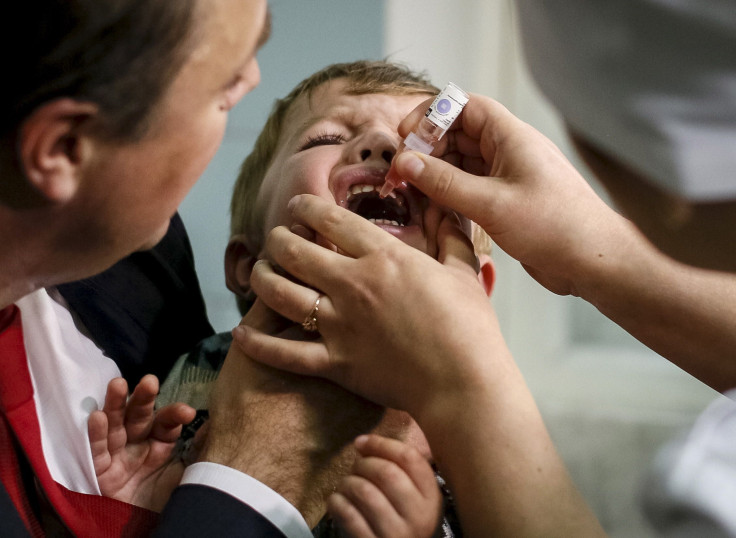Ukraine's Polio Outbreak: Why We Should Be Concerned About The First Cases In Europe Since 2010

Only half the population in Ukraine is vaccinated against polio (or vaccinated in general), so it’s concerning to learn that two cases of polio have appeared in the country — the first European nation to see the disease since 2010.
According to the World Health Organization (WHO), two children living in the Zakarpatskaya oblast in southwestern Ukraine were confirmed to have circulating vaccine-derived poliovirus type 1, or cVDPV1, in June and July of this year. Vaccine-derived polioviruses mutate from the oral vaccine virus, which is a weakened live version. It’s spread when a child is vaccinated and continues to excrete the vaccine-virus for six to eight weeks, potentially putting other unvaccinated children at risk if it mutates.
The fact that this type of polio is technically spread through a virus may contribute to the anti-vaxxer rhetoric and fear-mongering, but the reality is it’s not the vaccine that causes the disease: It’s the low rate of immunization.
“These cases have arisen as a result of a very low level of immunization in the country,” Igor Pereginets, deputy minister of health in Ukraine, said in a statement, according to an AFP video.
While two cases may not seem like such a big deal, the greatest liability lies in the huge part of the country that is still unvaccinated. Kids in Ukraine (or other European countries) who were never immunized are now at risk of catching the virus, and the same risk is there for travelers to Ukraine who have never been vaccinated. Europe has been polio-free since 2010 — and the U.S. since 1979 — but a chunk of anti-vaxxers in these countries have still refused to vaccinate their children. It’s these kids who are at a risk of developing polio, and by nature that means America is at risk, too.
Ukrainian health officials have launched a broad immunization program to get as many kids vaccinated with the oral vaccine as possible. Still, the WHO has asked Ukraine to declare a state of emergency to help drive the urgency home to Ukrainian parents who are uneducated about the importance of vaccines, and the dangers of polio. According to UNICEF/WHO, only 18 percent of Ukrainian mothers think polio is dangerous and only 27 percent know it can cause paralysis.
Earlier in September, Nigeria became polio-free — leaving Afghanistan and Pakistan the only countries next to Ukraine to remain polio-endemic.
But not all hope is lost. In fact, some health officials view Ukraine’s polio crisis as a trigger to improve immunization all across the country — not only for polio, but for other diseases like measles and mumps.
“This is being seen as an opportunity to reinvigorate the immunization system in the country,” Oliver Rosenbauer, a spokesman for the WHO’s polio eradication program, told NPR. “The polio outbreak has put the spotlight on the dangers of vaccine coverage gaps.”



























